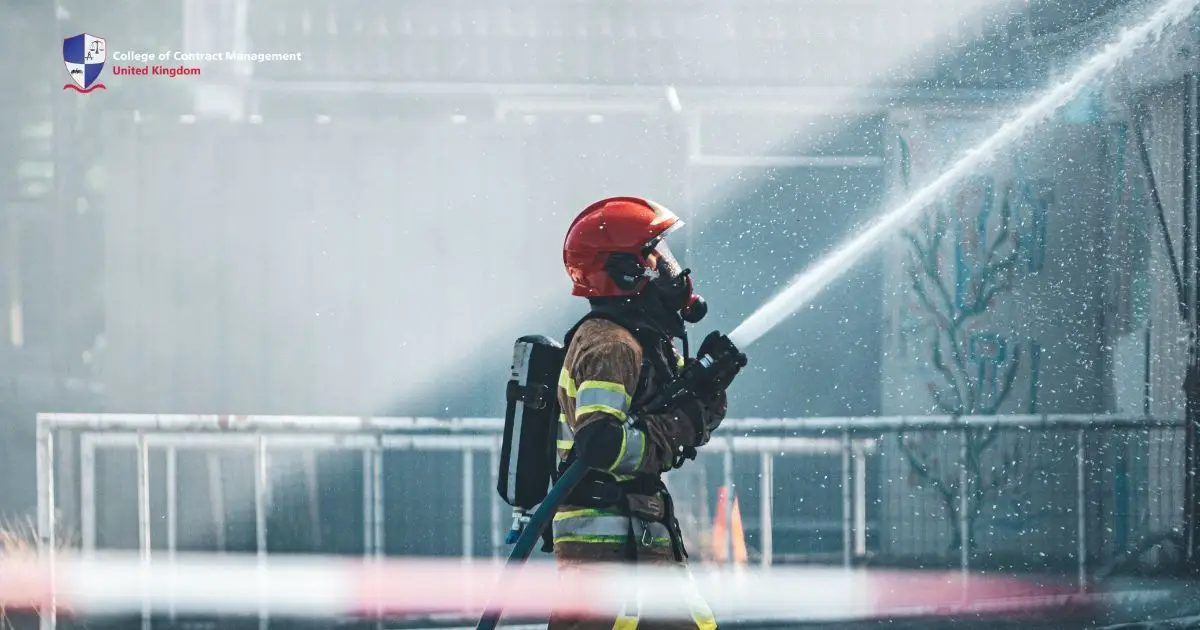Imagine you work in a place where nobody checks whether or not the environment is safe at all, such as making sure no slippery surfaces and sharp tools are lying around. It appears that everything is normal up to a point. Until one day, somebody is injured in that unsafe environment. So much trouble comes with this. Your company is liable to pay the medical bills and may be sued, and gossipers will soon gather at your door. Such a situation is a negligence of the duty of care.
This all could have been avoided had the company taken care of safety at the very beginning. It is a duty of care, wherein the company is liable to keep everyone safe in the workplace. If that is neglected, then it may cost highly, both to employees and the company. So, safety always matters when it comes to business and work.
What does “Duty of Care” mean?
A duty of care exists where an organisation or business responsibility to keep each other safe. This means the organisation should make sure that the workplace is free from hazards, be they physical or mental. Safety equipment and training on safe practices should be provided for each worker. Fitting the worker for that safe environment and their jobs with features like ergonomic furniture will help keep them away from sick leaves due to work-related causes. This is the perspective from which all obligation comes down to keeping any worker safe during working hours. And it is very critical because it makes one feel at home inside the work environment.
When it comes to caring about people's minds and feelings, it could also require something like the availability of someone to talk to for those who feel gloomy or anxious. It may also involve the provision of stress relievers, or creating a work atmosphere where everyone is kind. When employers do this duty of care, it helps everyone feel comfortable and happy at work. Taking care of both the physical and emotional safety of workers helps the business too.
Importance of Duty of Care
Workers could be injured or dead, and the entire staff's work might come to a halt. Moreover, the company may have to spend on medical bills, legal problems, or salaries of injured workers. That is why safety is so important. Just think of all the other things that may happen if the company does not follow the rules to keep workers safe; they will get into a lot of trouble. They may have to pay a hefty fine, go to court, or even be penalised. Such incidents create an impression in others' minds as to how that company doesn't care about its workers, and that is certainly not a good impression. Once a company loses its reputation, it becomes almost impossible to recover it, as it may lose trust or support from the public. That is why safety rules and duty of care must be followed.
Why Ensuring Worker Safety is Important
- An unsafe workspace may harm or even injure individuals. Such events disrupt the workflow as it requires personnel to rest, resulting in productivity loss.
- There will be problems in the company concerning the safety rules when the company pays big fines; it might even be held in court.
- When a company duty of care about keeping everyone safe, it will make the employees happier and earn their trust. This, in turn, would motivate them to stay and work hard.
Basic features of Duty of Care in the workplace
This duty in the workplace means an assurance the employer gives its employees to keep them safe during work hours. first, the employees have to be provided with maximum physical safety. This way, they are as risk-free while working as possible. Let’s look at the key aspects of physical safety in the workplace.
Physical Safety:
- Removal of work-based hazards: First, they must ensure the workplace is safe and devoid of dangers, like slippery floors or broken machines. They also need to fix things that could cause accidents.
- Maintaining tools and equipment: This also means the duty of care of the tools and machines people use, making sure they work properly and aren’t dangerous.
- Keeping work setup safe: Employers even need to think about how the workspace is set up, like leaving enough room to move around so no one bumps into things or gets hurt.
- Ensuring employee safety: Employees receive safety harnesses, such as gloves or helmets, for safekeeping from different hazards and risks.
Duty of care at work isn't only about working without harm; it includes the feeling of having good well-being in spirit and mind. Work sometimes can get so overwhelming that it is unhealthy for anyone. An example of this is when an employer tends to the body and mind of their workers because it proves that they care for their people. Everyone feels happier and healthier, and that makes the workplace a better place to be.
Mental and Emotional safety:
- Preserving Feelings: Keeping the body healthy is not all; even employees deserve healthy hearts and minds as well. This will be achieved through therapist consultations, stress management teachings, and everything that comes under the duty of care.
- Learning to Prepare: Employees must also have regular lessons on rules concerning safety. This defines the course of action that every employee has to take in the event of an emergency and secures their safety.
Facilitating and developing a safety and care culture
A clear safety policy initiates cultural action in safety. Let’s learn how to make sure everyone at work feels safe and cared for by creating a safe culture. It’s like building a team where everyone works together to keep each other happy and healthy. Here’s how we can do this duty of care:
- Clear Rules for Safety: First, employers write down all the safety rules so everyone knows how to stay safe. It’s like having a guidebook that shows what to do and what not to do.
- Talking about Safety Together: Employers and workers have regular meetings to chat about safety. They practice what to do in emergencies, like fire drills, so no one feels scared or confused.
- Learning and Training: Employers teach their workers how to stay safe through training programmes. It’s like going to a fun safety class where you learn how to take care of yourself and others.
How to Create a Friendly Workplace
- Safety Check-Ups: Just like you check your toys to make sure they aren’t broken, workplaces have regular check-ups to find anything unsafe. Notify the maintenance crew of broken machines, floors all wet and slippery, or anything that can endanger someone.
- Teamwork Makes Safety Fun: Employees are pledged to a duty of care! They have access to the unsafe areas and can convey whatever idea comes into their minds regarding turning such unsafe places into safe areas. It is just like being a safety detective.
- Working together: When you all share your ideas and work as a team, it creates a place where individuals feel secure and happy. Everyone feels that he or she is participating and caring for others.
Business Benefits of Duty of Care
First off, a duty of care results in fewer cases of hurt employees in a company, and then employees do not have to miss work. Being more available allows for more work towards running the company more smoothly. And when workers feel secure and cared for, they're happier. Happy workers do their jobs better because they feel valued. So, when everyone works together like this, the whole business becomes stronger and does great things.
When a company does its duty of care for its workers and makes sure they’re safe, people start to notice. They hear that the company cares, so more talented people want to work there. The workers who are already there are happy and stay with the company longer. Plus, customers and other businesses like working with companies that care about their employees.
- Keeping workers safe makes them happy and helps them do a great job. When people feel cared for, they work better and with a big smile!
- Being a safe and caring place to work brings in loyal workers and happy customers. It’s like when a school gets lots of gold stars—it makes everyone want to be part of it.
- Fewer accidents mean less money spent on fixing problems. No big bills for lawyers or extra insurance means the company can save and grow.
Practical steps for ensuring duty of care in your organisation
A very important aspect of having your business fulfil the duty obligations is to have a detailed risk management plan. This includes strategies for identifying, evaluating, and mitigating potential risks along with emergency response procedures. It's also important to involve employees, in the form of regular training and seminars, and encourage them to report unsafe conditions or hazards.
Here’s how you can make it happen:
- Make a plan to keep everyone safe: Think of it like drawing a treasure map. This plan helps find and fix things that could cause trouble.
- Spot the dangers: Like looking for a wobbly chair or a slippery floor—we check carefully to keep everyone safe.
- Be prepared for a rescue plan: Similar to a fire drill, duty of care requires that we need to know what to do if something goes wrong. Work in a team: everyone helps! Teachers and students can communicate their thoughts and also speak up when they see something unsafe.
- Have a ready rescue plan: As for the fire drill, we should know what to do when something goes wrong.
- Work as a team: Everybody helps! Teachers and students can speak and share their ideas for safety.
Implementing workplace safety technology
Implementing workplace safety technology can further enhance your duty of care efforts. Additionally, just like cleaning up our desks regularly, they also check everything often with safety inspections to make sure all the gadgets and systems are working well. Isn’t that neat? Technology helps keep everyone safe and sound. These technologies include:
- Safety Gadgets: Imagine having a gadget or device that helps tell us if something might be dangerous. It’s like a special agent’s gadget that keeps people safe!
- Smart Equipment: AI appliances and computers can take the place of supervisors in checking whether things go according to which operates normally together, confirmed with the same double-checking routine.
- Constant Surveillance: In some workspaces, cameras or installations are there to see, which involves keeping things under observation all the time so they can deal with problems on time.
Taking Action for Prioritising Employee Safety
Well, just imagine ourselves in charge of making the workplace a probable haven for everyone—the duty of care for not just one's people but also the psychological readiness of each one—and the importance of all those hints you were able to learn from reading the post. For when one feels that he is in a place that has witnessed his growth and development and through teams-the lynched-stiffness, which makes one successful. Workers who understand that that their superiors do care for them, stay in the company even longer. In that signing of trust, the workplace becomes a happy place, wherein people feel valued. All these steps are taken as a precaution to keep everyone safe and cared for, thus forming a great workplace for everyone.
If you want to go beyond safe workplaces, then you should analyse the curriculum offered by the College of Contract Management. We have very useful courses and tools to teach businesses how to take care of their employees and ensure compliance with all major safety laws. This is just like you conduct safety drills in the office, where these lessons help professionals keep workplaces safe. Go now!





